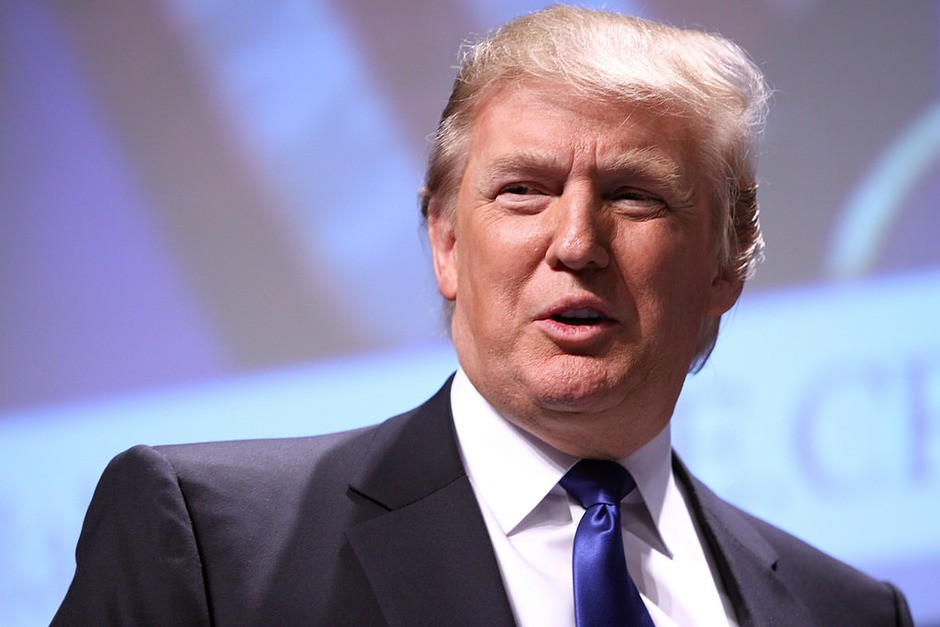Trump Then and Now on Deficits: What a Difference 3 Years Make!

As investors look ahead to a likely rate cut next week by the Federal Reserve, gold and silver markets have been consolidating their recent gains.
A big move in metals markets could come after the Fed’s policy meeting next Wednesday. Of course, the magnitude and direction of the move will depend on what Chairman Jerome Powell and company do and say.
Central bankers are under immense political pressure to lower interest rates and resume purchases of government bonds. A recent downturn in manufacturing and home sales data may well give them cover to roll out new stimulus even as the stock market sits near a record high.
It remains to be seen whether stocks will be the primary beneficiaries of Fed easing. If investors fear the Fed is inflating to try to get out in front of an oncoming recession, they may rotate out of economically sensitive equities and seek inflation protection in hard asset related investments.
Congress and Trump Suspend Debt Limit, Jack Up Spending
One thing that is certain to continue inflating is government debt. On Monday, President Donald Trump announced he reached a grand compromise with Senate Majority Leader Mitch McConnell and House Speaker Nancy Pelosi on the federal budget.
In reality, though, neither side made any meaningful compromises when it comes to spending restraint. Instead, Republicans and Democrats came together to compromise the nation’s fiscal health by blowing through previously installed spending caps and raising the debt limit. That paves the way for another $320 billion in deficit spending.
Under the deal, the debt ceiling will be suspended until July 2021 – effectively taking it off the table as a campaign issue in 2020.
Many Republicans cheered increases in military spending while Democrats celebrated increases in pet social programs that the White House had once tried to put on the chopping block.
The budget President Trump originally sent to Congress contained numerous cuts to discretionary programs. The proposed cuts weren’t enough to balance the budget, but they were symbolically important to fiscal conservatives.
Now they are left with nothing to latch onto except perhaps the faint hope that if he wins a second term, Trump would engage in a budget fight with Congress and finally deliver on his promise to drain the swamp.
Some Republicans think the time to fight against wasteful deficit spending is now. The House Freedom Caucus is opposing the budget deal, as is Kentucky Senator Rand Paul.
For most members of Congress, though, the political price of standing in the way of spending is simply too great.
When Senator Paul insisted recently that that funding for 9-11 first responders be offset by spending reductions elsewhere in the budget, he got viciously attacked from all sides. The attacks were amplified by liberal comedian Jon Stewart and the mainstream media. At the end of the day, only one other Senator supported Rand Paul’s lonely campaign to stop new spending from being added to the national credit card.
Trump Railed against Debts and Deficits in 2016
Ironically, the budget deal that President Trump now backs represents exactly the sort of “bad deal” he railed against on the 2016 campaign trail.
Donald Trump: We have $19 trillion dollars in debt going very soon to $21 trillion because we made a bad budget deal. We have got a mess in this country. We owe $19 trillion. We owe $19 trillion as a country, and we're going to knock it down, and we're going to bring it down bigly and quickly. We're going to bring jobs back. We're going to bring business back. We're going to stop our deficits. We're going to stop our deficits. We're going to do it very quickly.
Campaign Audience: How? How? How?
Donald Trump: Oh, how? Are you ready? Number one, we have tremendous cutting to do.
Well, the national debt has since gone from $19 to over $22 trillion. Instead of dealing with it directly by cutting spending as candidate Trump had suggested, President Trump now aims to reduce the cost of servicing the debt.
He is pushing the Fed to lower interest rates and resume Quantitative Easing. He is also pushing for a weaker dollar to diminish the real value of the trillions we owe to ourselves and to foreign governments including China.
Republicans defenders of the deficit-expanding budget deal say it will help rebuild our military and enhance national security. But at some point, the skyrocketing national debt will itself become a national security risk to America.
JPMorgan Warns Federal Reserve Note Could Lose Status
Investment banking analysts at JPMorgan recently issued a report warning that the fiat U.S. dollar could soon lose its world reserve currency status. Trump administration officials appear to be worried about this prospect as well.
They fear adversarial countries such as Russia, Iran, and Venezuela will successfully circumvent U.S. sanctions using alternative trading channels such as Instex.
In the meantime, Russia and China continue to add steadily to their gold reserves.
If the dollar standard falls, then gold holders will be in a far more secure position than those that hold only promises issued by governments.
To receive free commentary and analysis on the gold and silver markets, click here to be added to the Money Metals news service.
Author

Mike Gleason
Money Metals Exchange
Mike Gleason is a Director with Money Metals Exchange, a national precious metals dealer with over 500,000 customers.

















